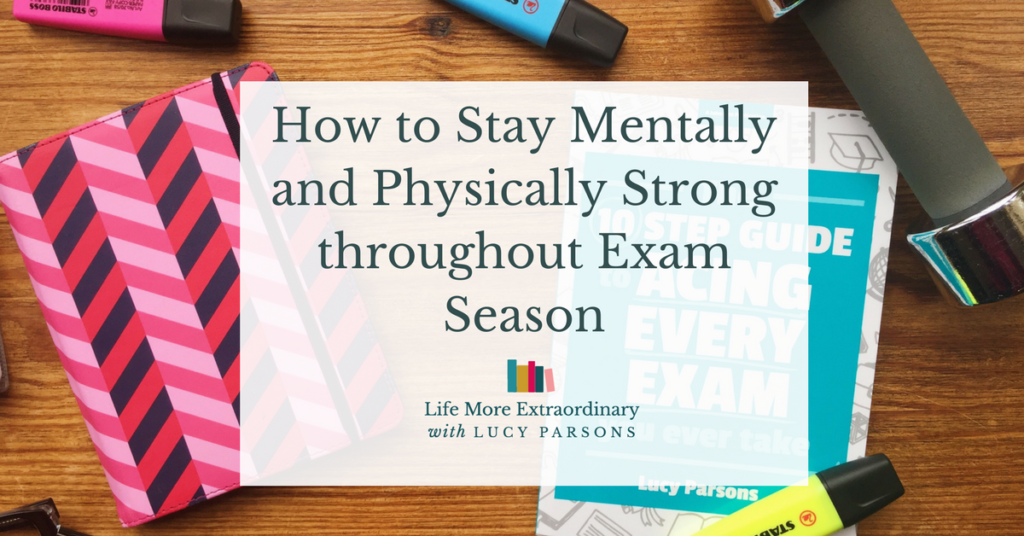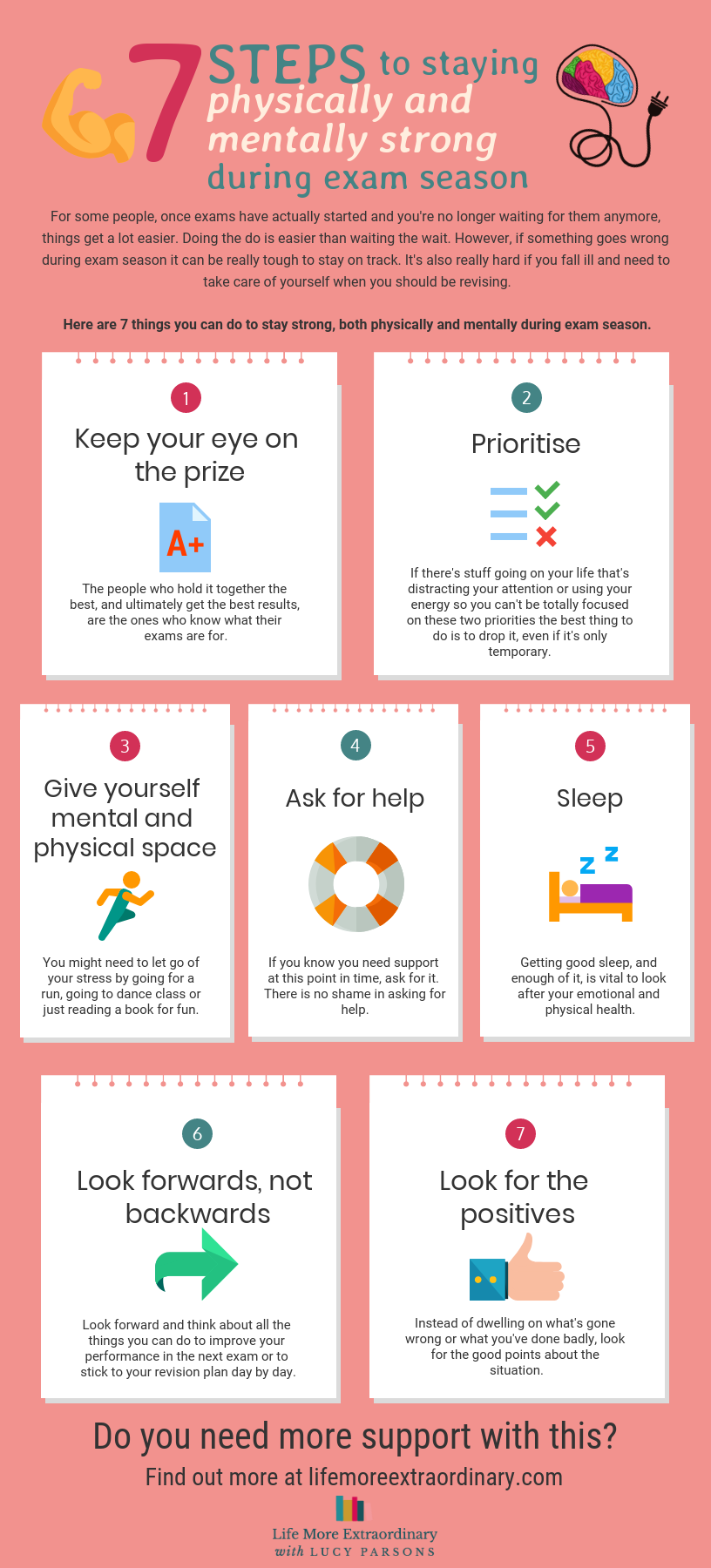How to stay mentally and physically strong throughout exam season
 For some people, once exams have actually started and you're no longer waiting for them anymore, things get a lot easier. Doing the do is easier than waiting the wait. However, if something goes wrong during exam season it can be really tough to stay on track. It's also really hard if you fall ill and need to take care of yourself when you should be revising.
For some people, once exams have actually started and you're no longer waiting for them anymore, things get a lot easier. Doing the do is easier than waiting the wait. However, if something goes wrong during exam season it can be really tough to stay on track. It's also really hard if you fall ill and need to take care of yourself when you should be revising.
In this post I'm going to give you some top tips on how to stay mentally and physically strong throughout exam season.
Doing the do is easier than waiting the wait. Share on XHow to stay mentally and physically strong throughout exam season
1. Keep your eye on the prize
The people who hold it together the best, and ultimately get the best results, are the ones who know what their exams are for. Whether you just want to get the grades to get onto an apprenticeship, you want to get into a particular sixth for or your life's dream is going to Oxford or Cambridge, you need to know why you're taking these exams.
In chatper 1 of my book The Ten Step Guide to Acing Every Exam You Ever Take I take you through some exercises to help you to discover your great big why, even if it's not obvious to you already.
Once you know your why keep it front and centre of your mind at all times.
2. Prioritise
You should have two priorities at this point in time:
- Getting the grades
- Looking after yourself
It's incredibly difficult to get decent grades if you're not in good mental or physical shape.
If there's stuff going on your life that's distracting your attention or using your energy so you can't be totally focused on these two priorities the best suggestion I can give to you is to drop it, even if it's only temporary. Things I'd particularly suggest you take a break from at this point in time are driving lessons and your part time job.
I gave up driving lessons while I was studying for my A Levels because I just couldn't cope with giving them either the time or the mental space they needed and get the grades I needed to get into Cambridge. I also only had a paid job during the holidays. Stuff like this can wait until your exams are over.
3. Give yourself mental and physical space
Sometimes the last thing you need to do after an exam is to come home and glue your eyes to your revision notes for the next day.
Instead, you might need to let go of your stress by going for a run, going to dance class or just reading a book for fun. I'd also suggest having at least an hour of study free time before bed and building meditation into your routine to calm your mind and become more mindful or your mood and needs.
4. Ask for help
If you know you need support at this point in time, as for it. Ideas might include:
- asking someone to take some chores off your plate for the next few weeks
- telling the people around you how you want to asked about your exams
- asking for the kinds of food and snacks you need to fuel you through exam season to be kept in the house
- asking someone to keep you accountable to your revision plan
There is no shame in asking for help.
In my Exam Season Toolkit for Supportive Parents I've suggested how your parents might like to offer you support with your nutrition, emotional needs and your learning. Encourage your mum or dad to download a copy (or if you're a mum or dad, you can get it here).
5. Sleep
Getting good sleep, and enough of it, is vital to look after your emotional and physical health. I know that I always look at life in a more negative way when I'm tired. I also find it harder to retain information and to think quickly. This is the exact opposite of how you want to be in an exam. Sometimes adrenaline will help you through, but not always. So, make sure you get enough sleep.
6. Look forwards, not backwards
It's very easy to beat ourselves up and focus on the negative. If you feel you didn't do enough revision before exam season started, or you have a bad exam, you might find that nasty little voice in your head telling you to give up or that you're useless. Don't listen to it. Instead, look forward and think about all the things you can do to improve your performance in the next exam or to stick to your revision plan day by day.
7. Look for the good
Instead of dwelling on what's gone wrong or what you've done badly, look for the good.
So, instead of saying to yourself, “I was tired after that exam I had to take a nap and I've only done an hour of revision this evening,” turn it around.
Instead, say something like this instead, “I listened to my body and gave it the rest that it needed. Then I made the most of the time available to me and really got my head around photosynthesis / calculus / why Iago was such a jealous viper.”
Talking to yourself like this is going to make you feel better about yourself and help you to move forwards with more confidence.
Do you need more support with this?
It's very easy to read and article like this, think ‘Yeah, yeah, good ideas,' then flick over to another web page and forget all about it. That's why I've invited Suzy Reading, clinical psychologist and author of The Self-Care Revolution to do a workshop for members of The Extraordinaries Club. It's called Self-Care for the Whole Family in the Exam Years. At the masterclass you will find out:
Click here to find out more and sign-up

